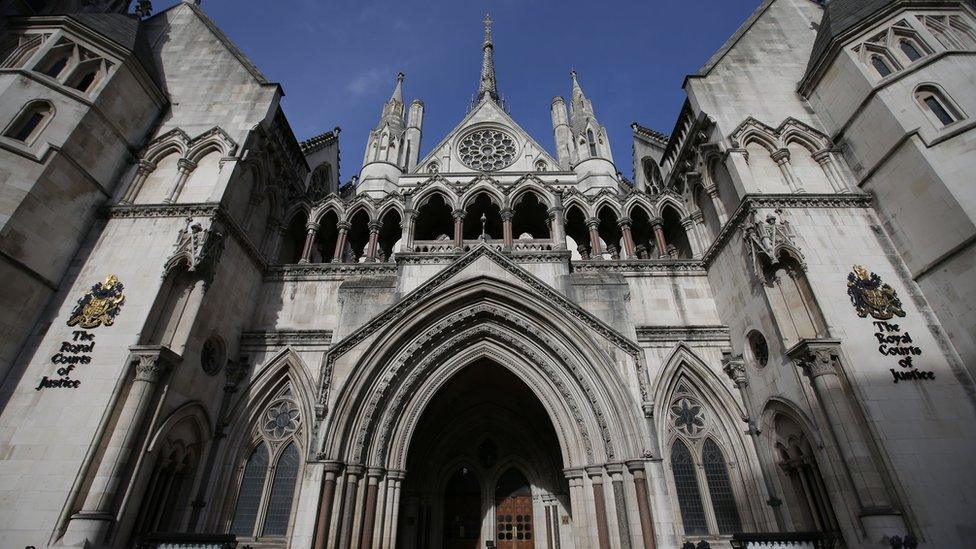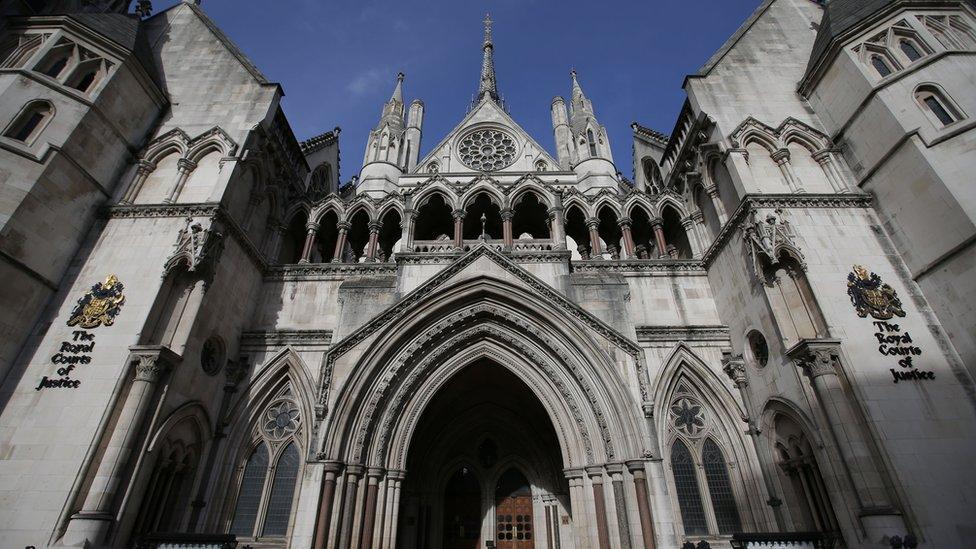Failed asylum seeker's daughter 'at high risk of FGM', judge rules
- Published

A hearing was held at the Family Division of the High Court in London
A failed asylum-seeker's daughter is at "high risk" of female genital mutilation (FGM) if she and her mother are deported, a senior judge has ruled.
The High Court heard the woman, who has links to Bahrain and Sudan, has been refused asylum by the Home Office.
Mr Justice Newton made an FGM protection order after the High Court ruled in 2019 the Home Secretary could deport her despite the risk.
The case, brought by Suffolk County Council, is the first of its kind.
Barrister Charlotte Proudman, who represents the girl's mother, called on Home Secretary Priti Patel "to show compassion... and make sure a child is kept safe".
'First of kind'
The mother's application for asylum was rejected by Home Office officials and two tribunal appeals have been dismissed.
But she fears if she leaves for Bahrain she will be trafficked to Sudan and her 10-year-old daughter put at risk.
In 2019, Sir Andrew McFarlane, president of the Family Division of the High Court and the most senior family court judge in England and Wales, concluded a judge could not bar then then Home Secretary Sajid Javid from deporting the woman but only ask for judges' FGM concerns to be taken into account.
Mr Justice Newton analysed evidence from this hearing, which he has described as the first of its kind.
In a written ruling he said the girl would be at "high risk" of being subjected to FGM if she was taken to Sudan.
He has said it raises public interest issues relating to "tensions" between politicians and the courts.
Lawyers say the woman and her daughter are still in Britain.
Judges have ruled the 10-year-old cannot be identified in media reports.
The BBC has asked the Home Office for a comment.
- Published5 March 2019

- Published31 October 2018
